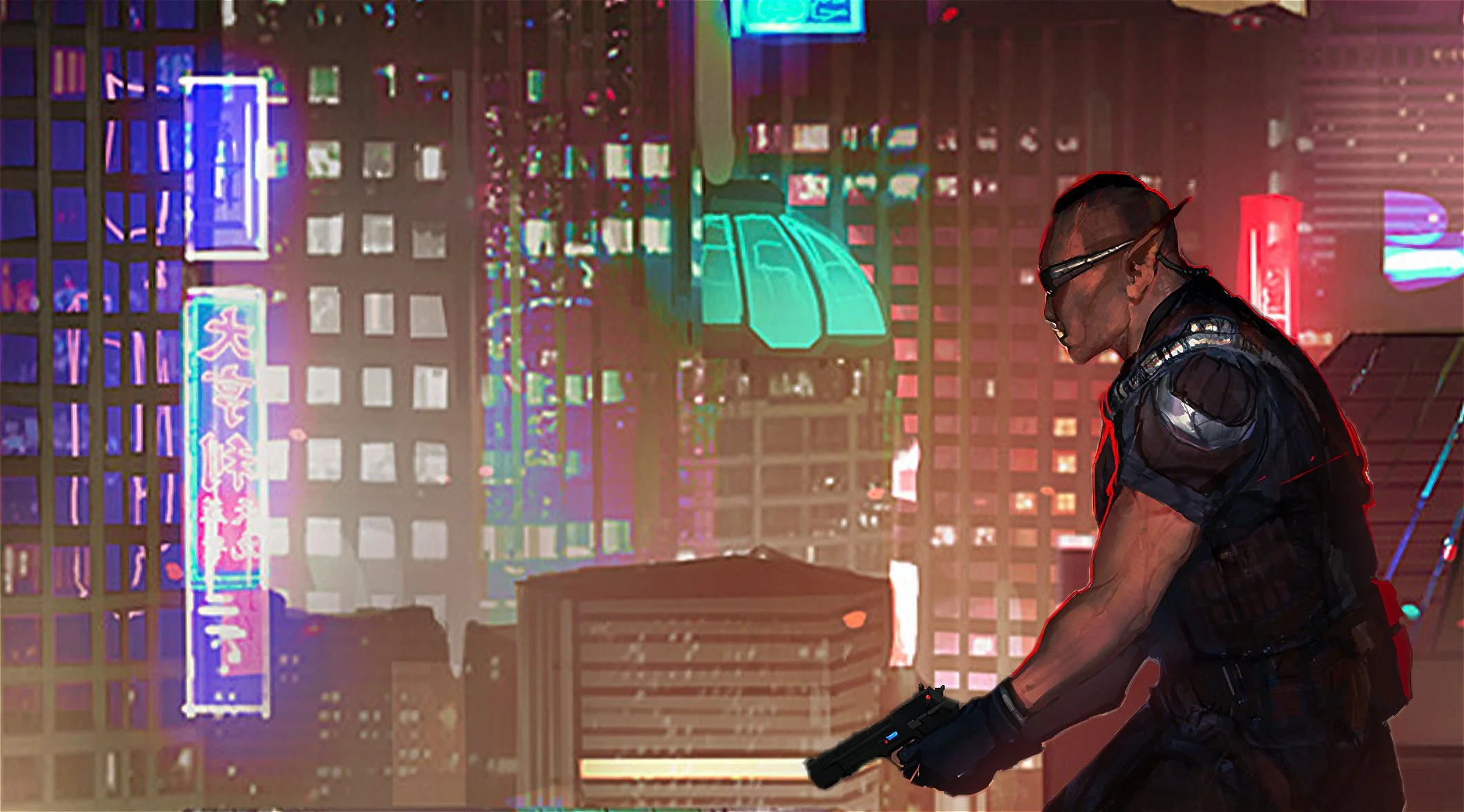03. Andrew McIntosh on the Creative Process and Narrative in Games
At HBS we’re kind of crazy for a compelling narrative at the heart of our games. Not to brag—okay, to brag a little bit—but one of the main reasons our games end up on PCGamer’s Top 100 games of all time is because of the stories we’ve told. We’ve been lucky enough to get a chance to work in some legendary game worlds as well as create some new ones of our own. No matter what, our goal is to craft games that live up to our North Star of “Challenge your mind, touch your heart”.
Behind those stories, in many cases and in many ways, has been Andrew McIntosh. Andrew came on to HBS right after the launch of Shadowrun Returns to write and design the narrative for Dragonfall. Since then he’s been an integral member of the studio.
With all that in mind, I thought others might like to hear a bit about his process, how he got into games writing, and what he loves most about narrative in games.
Andrew, thanks for sitting down with me.
Sure thing!
Games writing sounds like a dream job, how did you land your position?
Honestly? I heard that HBS had an opening and I went for it! I'd been working as an artist in the games industry for about 8 years at that point, but I didn't have any game writing credits. What I did have was a deep and abiding love of interactive storytelling, and of the Shadowrun IP in particular. I also had a friend at HBS who could ensure that my audition piece landed in front of the right sets of eyes. So I sat down, taught myself the SR editor, and got to work.
I eventually wound up submitting two auditions for the job: a super-early prototype version of what would later become Dragonfall's "MKVI" mission, and the full backstory and dialogue trees for an NPC named Glory. Seeing the design team adopt her as Dragonfall's first party NPC was one of the great joys of my career.
What are some of your all-time favorite narrative moments in games?
Planescape: Torment – the entire Civic Festhall sequence, culminating in the "Longing" sensory stone.
Horizon: Zero Dawn – the reveal of what "Zero Dawn" really means, and why.
Disco Elysium – Roleplaying as an off-brand Agent Dale Cooper was a constant source of delight.
What’s your one favorite thing—a moment, a scene, a single line—that you’ve written at HBS?
Tough question! If I had to choose just one scene, I guess I'd pick Glory's confrontation with Marta in Shadowrun: Dragonfall. That was a tough one to get right, both tonally and mechanically, and I'm proud of how it turned out.
Tell us a little about the power of narrative in games.
Obviously, I'm a little biased here, but for my money narrative is one of the most powerful weapons in a game-maker's arsenal. In an RPG like Shadowrun, the story is a large part of the game's selling point, but narrative can be just as important in the tactics game space. With the added context that narrative provides, an otherwise-repetitive activity (Destroy 4 BattleMechs) can become a memorable quest (Destroy the infamous mercenary lance "the Knives of Calseraigne"), or a simple choice can turn into a powerful moral dilemma.
Could you describe how you go about writing a scene?
Sure! I start with an outline. What is the scene trying to accomplish? Who needs to be there, and why? I make sure I’m keeping it simple wherever I can. The longer it takes to explain what's happening in a scene at the outline level, the more convoluted the final product is likely to feel. In my experience, the most memorable scenes tend to come from simple situations encountered by complex characters with conflicting motivations or personalities.
Then, after finishing a draft, I get a second pair of eyes on my work - outside feedback is the best way to edit something down.
Finally, I try to stay flexible, and don’t get too precious about my writing. If it doesn’t work, I kill my darling and try again. Better to cut something I liked than to see it turn into a stumbling block for the rest of the narrative!
I’m not going to let you get into specifics, but what are you excited about what we’re working on right now?
I'm extremely excited about the universe we're building, and the many strange beings we're populating it with. It feels like a fresh spin on concepts that long-time HBS fans are going to love, with a narrative full of player-driven choice. That choice-driven narrative and the game's mechanics intertwine beautifully with one another, and I think it's a great display of how narrative can amplify gameplay through stakes and context.
We're still in the early days of the project, so that's all I can say at the moment. But I honestly can't wait to share more!
Any advice for aspiring games writers?
So, I should probably start by acknowledging that it's rough out there right now, for aspiring writers and veterans alike. That said: it's a small industry. Make friends with other game devs, or if you're in school, with students whose work you admire. And when you do get the chance to submit an audition or a writing test, aim to overdeliver! Iterate on your draft and solicit feedback if possible. Try to tell a story with a beginning, middle, and end, even if you're only submitting a single scene or a dialogue sample.
This is your opportunity to show a hiring manager what makes your voice special. And finally: in my experience, when a writer is having fun, it shows up on the page. So have fun with it!
Thanks again Andrew for taking a bit of time out of your day to share with us.
Thank you, it was fun!

